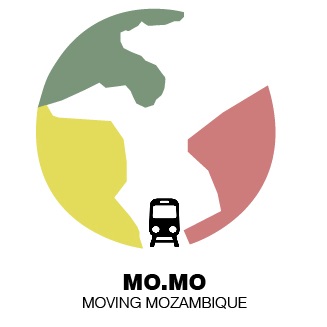 What does it mean to build a national railway that can switch from freights to passengers in a developing country? Which relations and connections have to be taken into account? Is it possible to enhance the potentiality of a growing nation taking into account both needs of local population and stakeholders’ perspective? How to develop an innovative business model that can help to approach the new urban challenges? Can such a model of development become replicable and applicable to different realities?
What does it mean to build a national railway that can switch from freights to passengers in a developing country? Which relations and connections have to be taken into account? Is it possible to enhance the potentiality of a growing nation taking into account both needs of local population and stakeholders’ perspective? How to develop an innovative business model that can help to approach the new urban challenges? Can such a model of development become replicable and applicable to different realities?
Transportation is one of the indicators for quality of life measurement, and railway is one of the most reliable options for public transportation to face high volume, low cost, and environmental friendly systems. In Mozambique, due to resources exploitation, nowadays freights transportation occupies most of the railway routes in the country, leaving few space for passengers, even if this sector has experienced an encouraging growth in recent years.
MOMO develops an investigation on strategic frameworks related to the design, improvement and networking of railway lines in Mozambique, both at regional and national level, as a tool for life quality improvement. The focus of the research is a railway connection through the northern part of the country, linking the province of Cabo Delgado with the south, intersecting the three main trans-national corridors that connect this country (and its ports) with neighbouring landlocked African countries.
An innovative multi-scalar approach has been applied to both metropolitan topics (seen as part of a big system in which the engineering components are prevalent) and systemic topics (studying their local and urban implications). What really stands as the main goal of the project is to seize the opportunity offered by the railway to provide local urban and rural population with an innovative and collaborative path to sustainable development, both economical and human, identifying a priority ranking for future private and public investments. The development of this information system is focused on a deep research on the knowledge, the dissemination and the promotion of the conservation of the African culture, studying the relations between them and the project, in order not only to save this traits, but to guarantee a sustainable preservation in the future.
The first of the phases in which the project is articulated is the reconstruction of the state of the art on the research object: at the level of social-economical-environmental survey, in terms of methods of acquisition and storage of data, in terms of application of techniques and tools for the spatial and territorial geo-references. The project also experiments a territorial strategy and the formulation of a business model which involves different partners and investors, able to promote a social growth based on national and international organizations’ investments. Finally, a study of control systems from third parts is fundamental to enhance a future to the project and to tackle the high level of corruption of the country.
Principal academic Tutor
Antonella Contin, Department of Architecture and Urban Studies, Politecnico di Milano
Academic Tutors
Pedro Ortiz, Visiting Professor, Politecnico di Milano
Paola Pucci, Department of Architecture and Urban Studies, Politecnico di Milano
Francesca De Filippi, Department of Architecture and Design, Politecnico di Torino
Alessandro Frigerio, Department of Architecture and Urban Studies, Politecnico di Milano
Alessandro Floris, Department of Architecture, Built Environment and Construction Engineering, Politecnico di Milano
Andrea Zammataro, Department of Architecture and Urban Studies, Politecnico di Milano
External institutions
Systematica Srl
ItalFerr S.p.a, Direzione Sviluppo Mercato Estero
MIT Dept. Urban Studies and Planning
Università Alma Mater Bologna
External tutors
Diego Deponte, Systematica Srl
Raffaele Lorusso, ItalFerr S.p.a, Direzione Sviluppo Mercato Estero
Gabriel Eduardo Lanfranchi, MIT Dept. Urban Studies and Planning
Massimiliano Musi, Università Alma Mater Bologna
Team members
Anita De Franco, Urban Planning and Policy Design, Politecnico di Milano
Andrea Govi, Architecture, Politecnico di Milano
Chiara Lippi, Architecture, Politecnico di Milano
Matteo Losurdo, Architecture, Politecnico di Milano
Tommaso Raimondi [Communication Coordinator], Architecture, Politecnico di Milano
Josè Alberto Ramos Mejia, Environmental and Geomatics Engineering, Politecnico di Milano
Lei Sun, Urban Planning and Policy Design, Politecnico di Milano
Maria Sole Teberino, Architecture, Politecnico di Milano
Valerio Verdecchia, Aerospace Engineering, Politecnico di Torino
Liu Ziwei, Interior Design, Politecnico di Milano
Laura Zura – Puntaroni [Team Controller], Architecture, Politecnico di Milano
